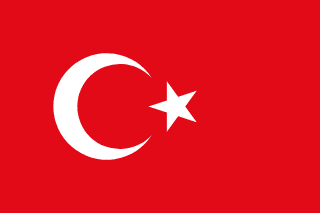

Employer of Record Guide in Turkey
Turkey's dynamic economy and skilled workforce make it an attractive destination for global expansion, but navigating local employment laws requires expertise. This comprehensive guide breaks down everything you need to know to hire compliantly and confidently in Turkey.
Capital City
Currency
Languages
Population size
Services available in this country:

Key stats and facts
Turkey offers access to high-demand talent across tech, healthcare, and renewable energy sectors, with major economic centers spanning from Istanbul to Ankara. Understanding the local market dynamics—from tax structures to currency considerations—is essential for successful expansion.
Major economic hubs
Skills in demand
Currency
Language
GDP per Capita
Standard Tax Rate
Your EOR guide in Turkey
From minimum wage requirements to complex payroll contributions, Turkey's employment framework has specific nuances that can impact your hiring strategy. Here's what you need to know about compensation, benefits, and compliance requirements to build your Turkish team successfully.
Minimum Wage
The national gross monthly minimum wage is TRY 26,005.50 as of January 1, 2025, with a net monthly minimum wage of TRY 22,104.67 after deductions. This represents a 30% increase from the previous year.
| Rate Type | Amount (TRY) | Effective Date |
|---|---|---|
| Gross Monthly Minimum | 26,005.50 | January 1, 2025 |
| Net Monthly Minimum | 22,104.67 | January 1, 2025 |
| Daily Gross Minimum | 866.85 | January 1, 2025 |
Note: The government may implement another increase in July 2025, depending on economic factors like inflation. Underground miners are legally entitled to double the standard minimum wage.
Payroll Cycle
- Monthly: Most common payment schedule, typically paid on the third of every month
- Legal Requirements: The law does not mandate a specific cycle, requiring only regular intervals as stipulated in employment contracts
Individual Income Tax
Turkey uses a progressive tax system for employment income with the following brackets for 2025:
| Income Bracket (TRY) | Tax Rate |
|---|---|
| Up to 158,000 | 15% |
| 158,001 to 330,000 | 20% |
| 330,001 to 1,200,000 | 27% |
| 1,200,001 to 4,300,000 | 35% |
| Over 4,300,000 | 40% |
Tax is calculated cumulatively throughout the calendar year.
Tax Residency Criteria
Individuals who reside in Turkey for more than six months in a calendar year are considered tax residents. Residents are taxed on worldwide income, while non-residents are taxed only on Turkish-source income. Turkey has double taxation treaties with over 80 countries.
Employer Payroll Contributions
Note: There is a discrepancy in the research regarding total employer burden. Please verify the exact percentage with local legal counsel.
When hiring employees in Turkey, employers must pay several mandatory contributions in addition to the employee's gross salary:
| Contribution Type | Employer Rate | Employee Rate |
|---|---|---|
| Social Security (SGK) - Standard | 20.5% | 14% |
| Social Security (SGK) - With Incentive | 15.5% | 14% |
| Unemployment Insurance | 2% | 1% |
| Stamp Tax | 0.759% | — |
Social Security Breakdown:
- Long-term insurance: 11%
- General health insurance: 7.5%
- Short-term insurance: 2%
Total Employer Cost: Approximately 22.5-24.75% of gross salary (verification needed)
Note: Compliant employers may qualify for a 5-point discount on social security contributions, reducing the rate from 20.5% to 15.5%. Stamp tax is exempt up to minimum wage level.
Working Hours
The standard work week in Turkey is 45 hours maximum, with daily working time not exceeding 11 hours. Flexible work schedules are permitted if documented in employment contracts and the weekly average doesn't exceed 45 hours.
Overtime Pay
- Rate: 150% (1.5×) of regular hourly wage for work exceeding 45 hours per week
- Annual Limit: Maximum 270 hours of overtime per year
- Written Consent: Required from employee for overtime work
- Time-off Alternative: Employees can opt for 1.5 hours of paid time off for each overtime hour, which must be used within six months
Bonus Payments
There is no general legal requirement for bonus payments in Turkey. However, regular bonus payments are included in calculating "dressed" gross wage for severance pay purposes upon termination.
Full-Time vs. Part-Time
- Full-time: 30-45 hours per week
- Part-time: Up to 30 hours per week
- Benefits: Part-time employees are entitled to proportional benefits based on working hours
Vacation Leave
Annual paid leave entitlement is based on length of service:
| Years of Service | Annual Leave Days |
|---|---|
| 1-5 years | 14 working days |
| 6-14 years | 20 working days |
| 15+ years | 26 working days |
Special Provisions:
- Employees under 18 or over 50 receive at least 20 days
- Eligibility begins after completing one year of service
- Unused accrued vacation leave must be paid out upon termination
Sick Leave
Sick leave is covered by the Social Security Institution (SGK), beginning from the third day of illness. A doctor's certificate is required, typically after the second day of illness.
Maternity Leave
- Duration: 16 weeks of paid leave (8 weeks before and 8 weeks after birth)
- Pay: Two-thirds of gross daily earnings from SGK
- Job Protection: Right to return to same or equivalent position
Parental Leave
- Paternity Leave: 5 days of paid leave
- Additional Options: Unpaid leave available (60-180 days depending on number of children) and part-time work options until child starts primary school
Bereavement Leave
- Duration: 3 days of paid leave
- Qualifying Events: Death of spouse, child, mother, father, or sibling
Personal & Family Leave
- Marriage Leave: 3 days of paid leave
- Adoption Leave: 3 days of paid leave
- Emergency Leave: Unpaid leave may be granted for family emergencies and caregiving responsibilities, subject to employer approval
Summary
| Leave Type | Duration | Paid? | Funding |
|---|---|---|---|
| Vacation | 14-26 days/year | Yes | Employer |
| Sick Leave | From 3rd day | Yes | Government (SGK) |
| Maternity Leave | 16 weeks | Yes (2/3 pay) | Government (SGK) |
| Paternity Leave | 5 days | Yes | Employer |
| Bereavement | 3 days | Yes | Employer |
| Marriage/Adoption | 3 days each | Yes | Employer |
Termination Types
Termination with Just Cause (Article 25):
- Immediate termination without notice or severance
- Must involve serious misconduct
Termination with Valid Reason (Article 18):
- Requires notice period and severance pay
- Based on employee conduct, performance, or business needs
Termination without Cause:
- For employees without job security protection
- Requires notice and may require severance
Constructive Dismissal:
- When employer creates hostile work environment forcing resignation
Notice Period Requirements
Notice periods are based on length of service:
| Length of Employment | Notice Period |
|---|---|
| Less than 6 months | 2 weeks |
| 6 months to 1.5 years | 4 weeks |
| 1.5 years to 3 years | 6 weeks |
| More than 3 years | 8 weeks |
Employers can terminate immediately by paying salary for the corresponding notice period.
Severance Pay
- Calculation: 30 days' gross wage for each full year of employment
- Basis: Final "dressed" gross wage
- Maximum Cap: TRY 46,655.43 per year of service as of January 2025
Note: The severance pay ceiling may be updated to TRY 53,919.68 for July 1, 2025. Please verify current rates.
Probationary Periods
- Standard Length: Maximum 2 months
- Extension: Up to 4 months through collective labour agreements
- Termination Rights: Either party can terminate without notice period or severance pay during probation
Final Pay Requirements
All final payments must be made on the termination date, including:
- Regular wages
- Overtime pay
- Unused vacation payout
- Applicable severance and notice pay
Termination Documents & Process
- Written notice required with clear reason for termination
- Employee defence statement required for conduct/performance-based terminations
- Proper documentation essential for legal compliance
Anti-Discrimination & Retaliation Laws
Employers cannot terminate based on protected characteristics including race, sex, religion, political opinion, or union membership.
National Holidays 2025
| Holiday | Date |
|---|---|
| New Year's Day | January 1 |
| National Sovereignty and Children's Day | April 23 |
| Labour and Solidarity Day | May 1 |
| Commemoration of Atatürk, Youth and Sports Day | May 19 |
| Democracy and National Unity Day | July 15 |
| Victory Day | August 30 |
| Republic Day | October 29 (starts 1:00 PM October 28) |
| Ramazan Bayramı (Eid al-Fitr) | March 29 (eve, half-day), March 30-April 1 |
| Kurban Bayramı (Eid al-Adha) | June 5 (eve, half-day), June 6-9 |
Holiday Pay Rules
- Employees receive regular daily wage for statutory holidays without working
- Working on holidays requires additional full day's wage (double pay)
- Religious holidays include half-day observances on the preceding evening
Required Documentation for Employment
- Employment Contract: Written agreement recommended; required for fixed-term contracts of one year or more
- Work Authorization: Valid work permit required for foreign employees
- Personal Documentation:
- ID card copy
- Certificate of residence
- Health report
- Criminal record check
Language Requirements
Turkish is the official language. Employment contracts and HR documents must be in Turkish for legal enforceability.
Background Checks & References
Background checks are permissible with employee consent, subject to Turkey's data protection laws (KVKK).
Data Protection & Privacy
Turkey's comprehensive data protection law (KVKK) requires:
- Legal basis for processing employee personal data
- Employee notification of data processing activities
- Compliance with data subject rights
IP Assignment & Confidentiality
Employment contracts should include clear intellectual property assignment and confidentiality clauses to protect business interests.
Probation Period Setup
Contracts may include a probationary period of up to 2 months (extendable to 4 months through collective agreements), during which either party can terminate without notice or severance.
Onboarding Timeline
| Step | Timeline |
|---|---|
| Job offer accepted | Day 0 |
| Work permit verification (foreign employees) | Day 1-3 |
| Employment contract preparation | Day 3-5 |
| Document collection and verification | Day 5-7 |
| Social security registration | Day 7-10 |
| Payroll setup completed | Day 10-14 |
What the EOR Handles
Borderless AI will handle:
- Employment contracts in Turkish
- Social security registration
- Tax compliance and withholdings
- Work permit coordination
- Local legal compliance
- Payroll processing and reporting
Worker Classification: Employee vs Contractor
The distinction between employees and independent contractors is crucial in Turkey. The key factor is subordination - whether the worker is subject to the employer's control and direction.
- Employees: Work under employer control, receive regular salary, entitled to labour law protections
- Contractors: Work independently, invoice for services, responsible for own taxes and social security
- Penalties: Misclassification can result in significant penalties, back payments, and legal liability
Unionization & Collective Agreements
Turkey recognises the constitutional right to form and join trade unions. Collective Labour Agreements can establish more favourable conditions than statutory minimums, including:
- Extended probationary periods (up to 4 months)
- Enhanced benefits and working conditions
- Industry-specific regulations
Cultural Norms & Workplace Expectations
Turkish workplace culture emphasises:
- Respect for hierarchy and seniority
- Strong interpersonal relationships
- Work-life balance, particularly during religious observances
- Formal communication in business settings
- Importance of personal connections in business relationships
Remote Work Considerations
Remote work arrangements require written contracts specifying:
- Nature and scope of work
- Duration of remote work arrangement
- Work location and hours
- Equipment provision and expense coverage
- Performance monitoring and communication protocols
Employers must ensure remote workers receive the same protections and benefits as office-based employees, including proper equipment and safe working conditions.
Built-in benefits packages for Turkey
When the world is your competition, it pays to incentivize new hires and existing alike. Borderless AI benefits packages typically inlucde:

Medical Insurance

Dental Insurance

Retirement Contribution

Life Insurance

Vision Insurance
Explore other countries

Unlock global hiring potential
Simplify your payroll and hiring processes today.








